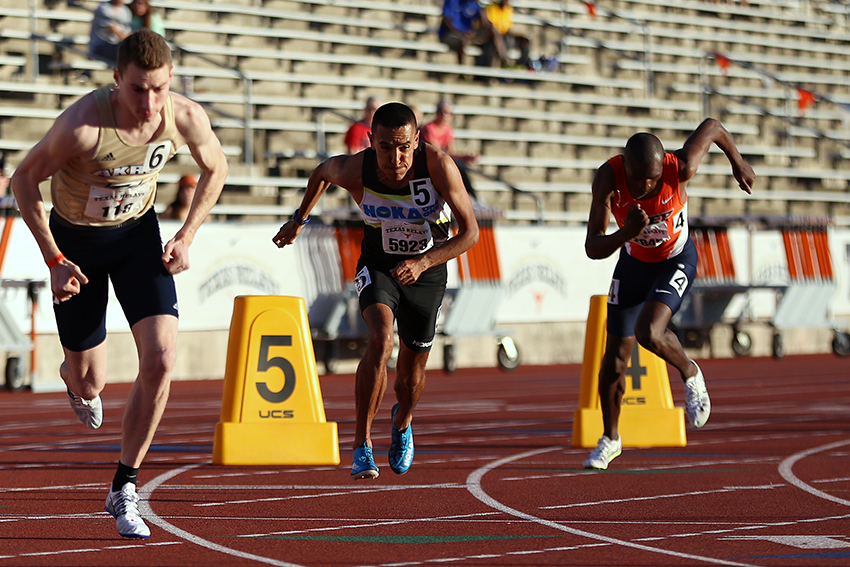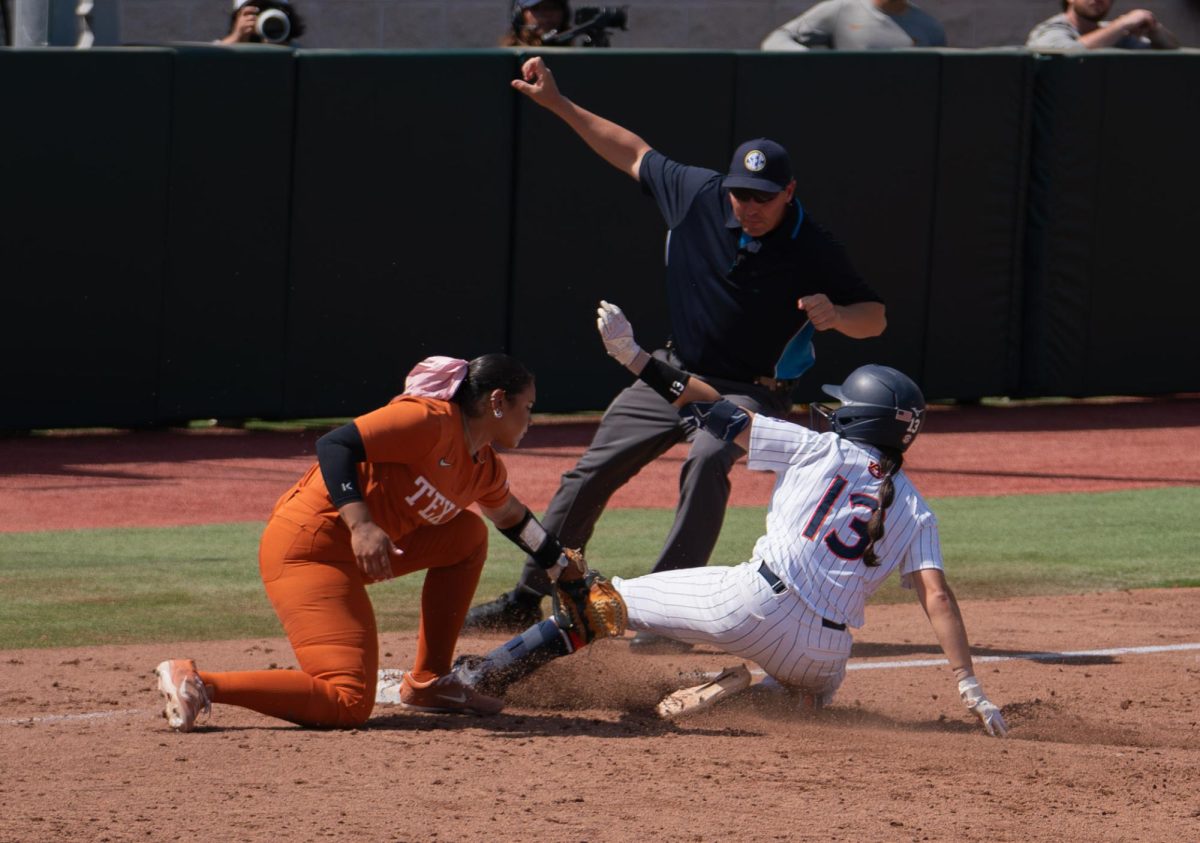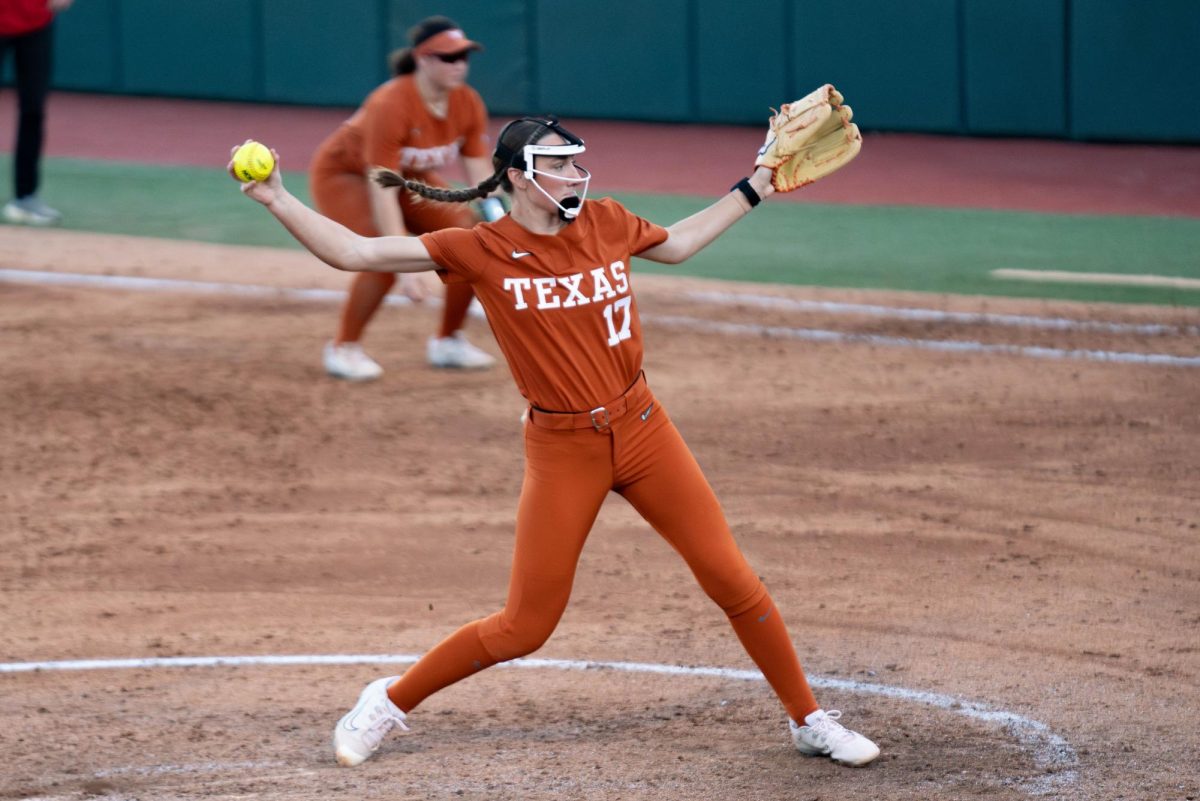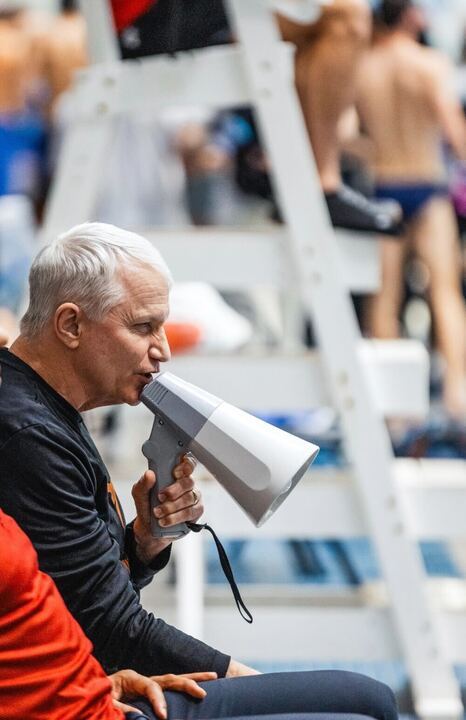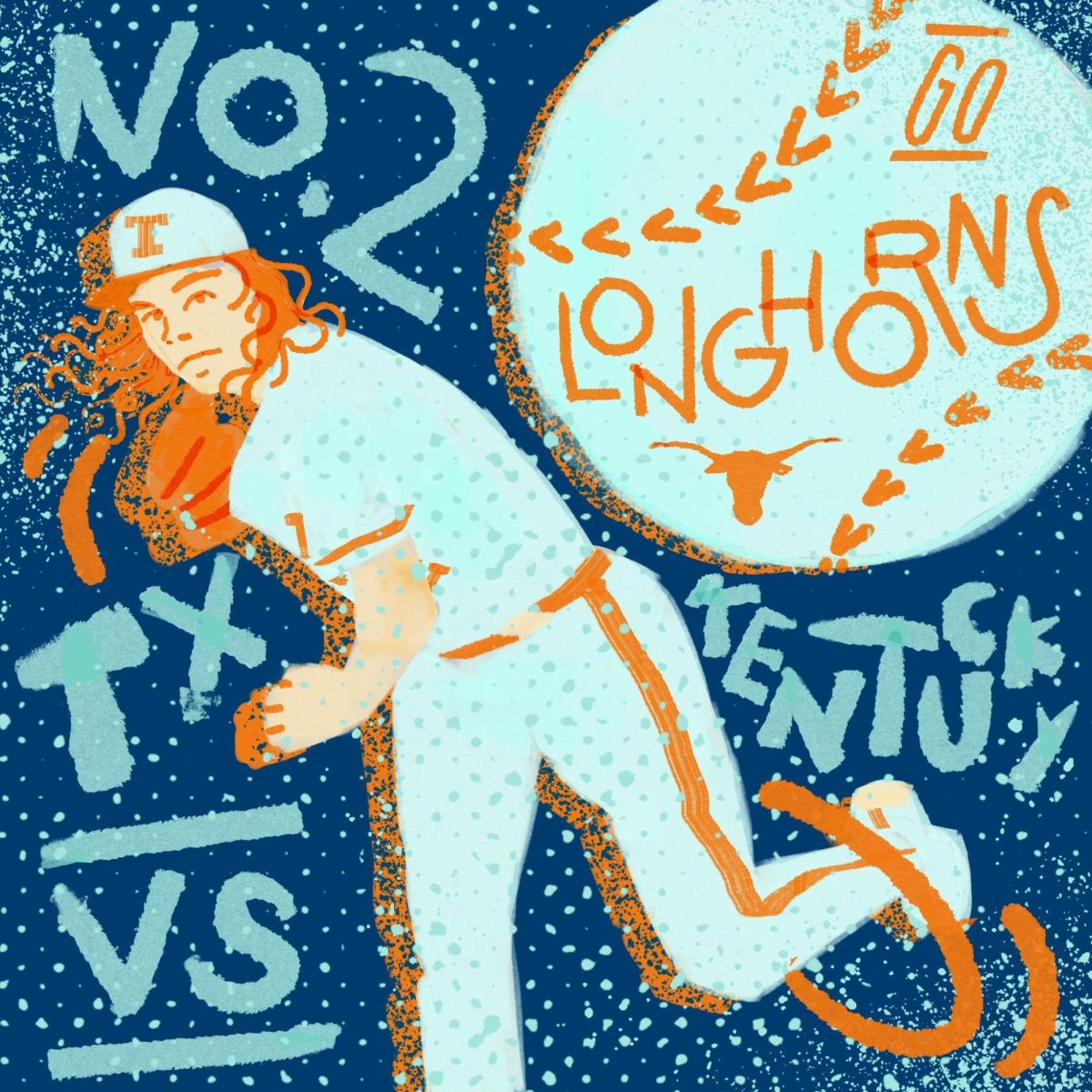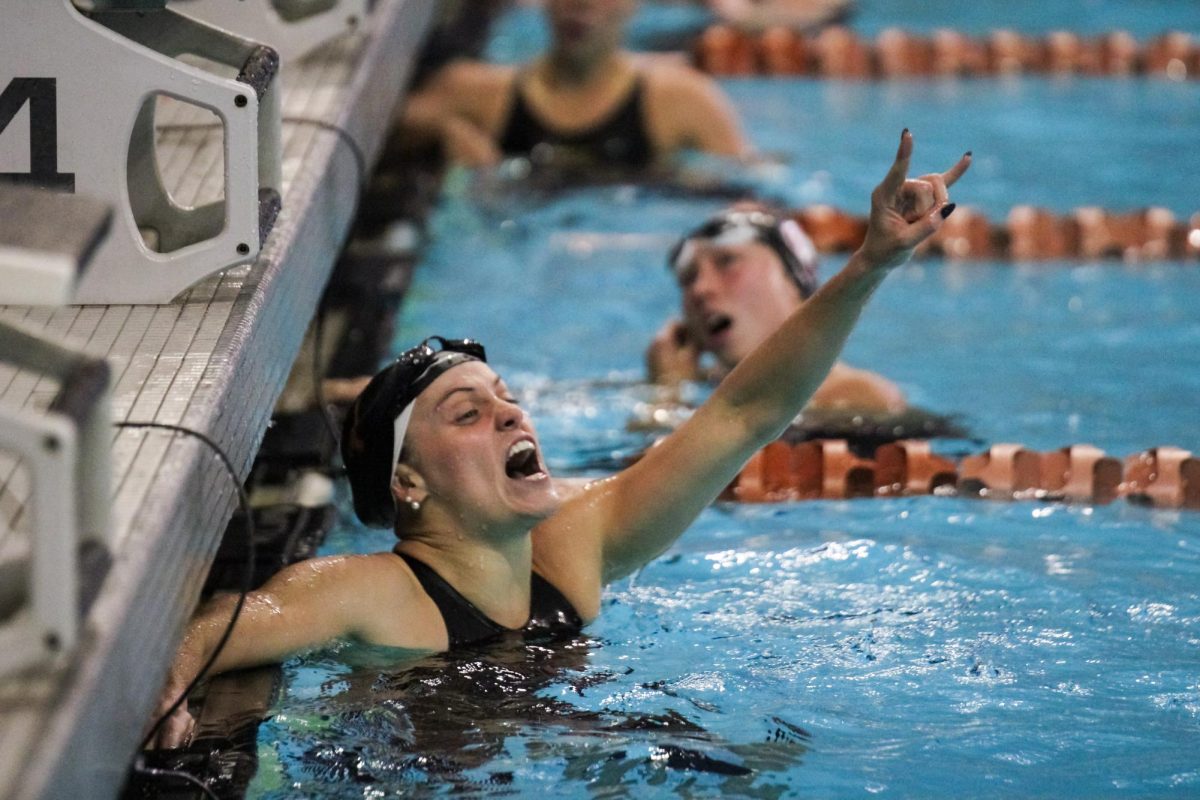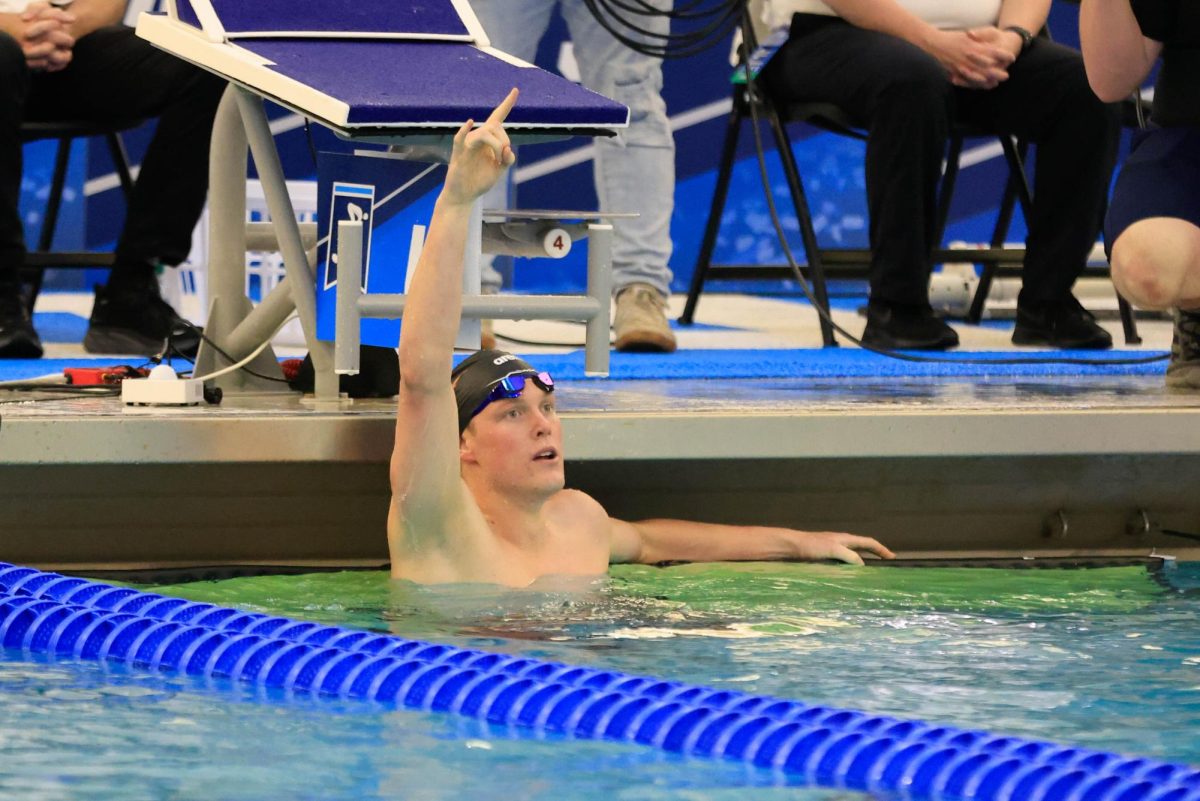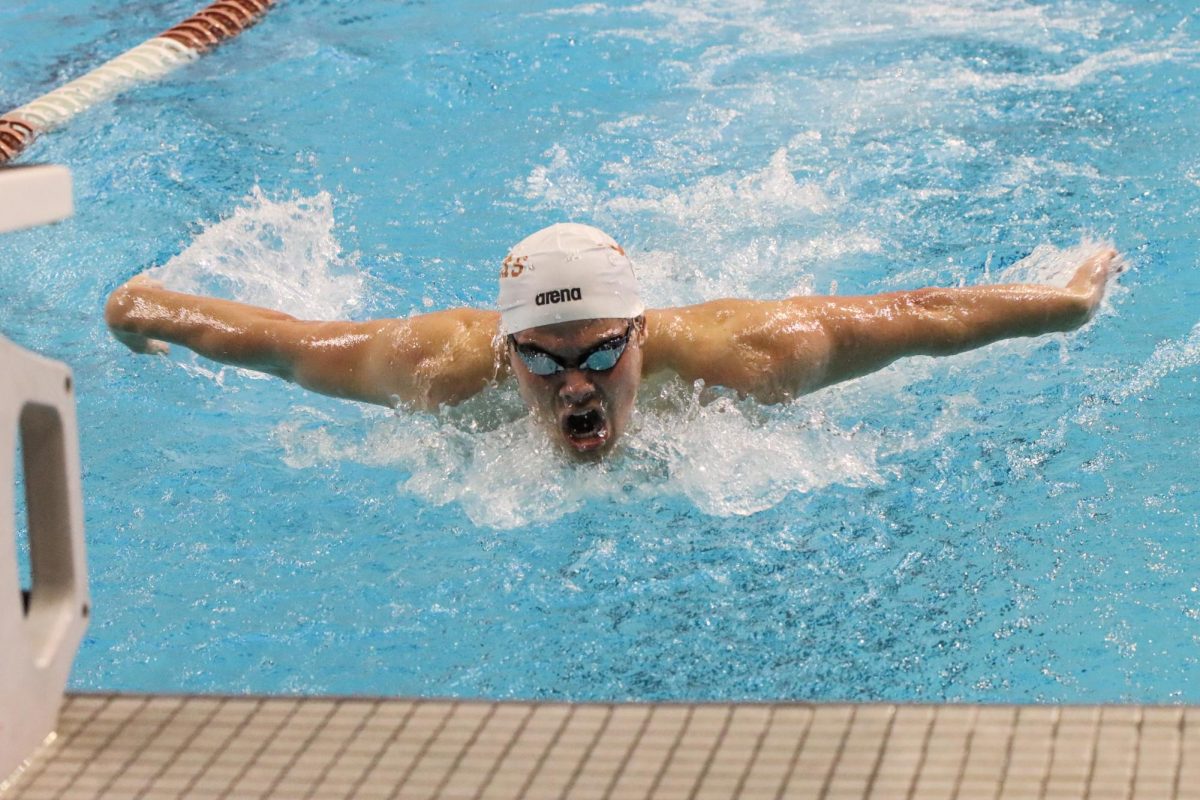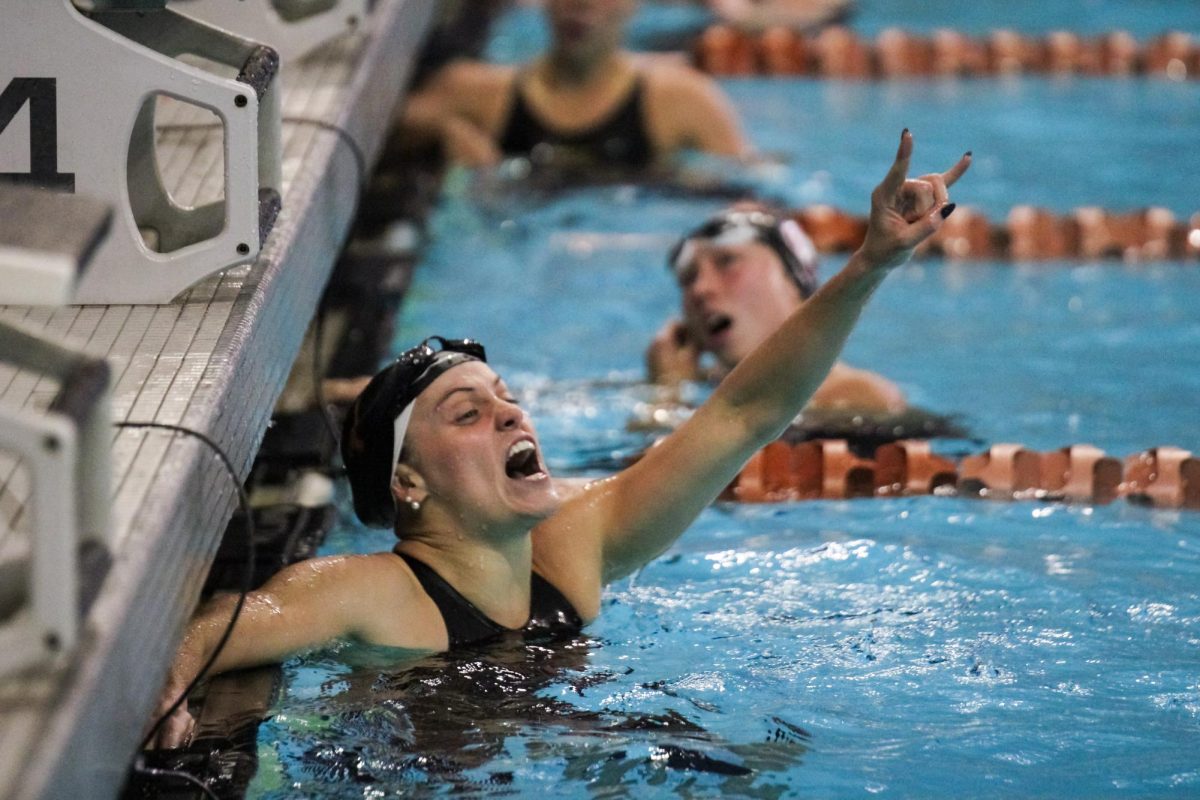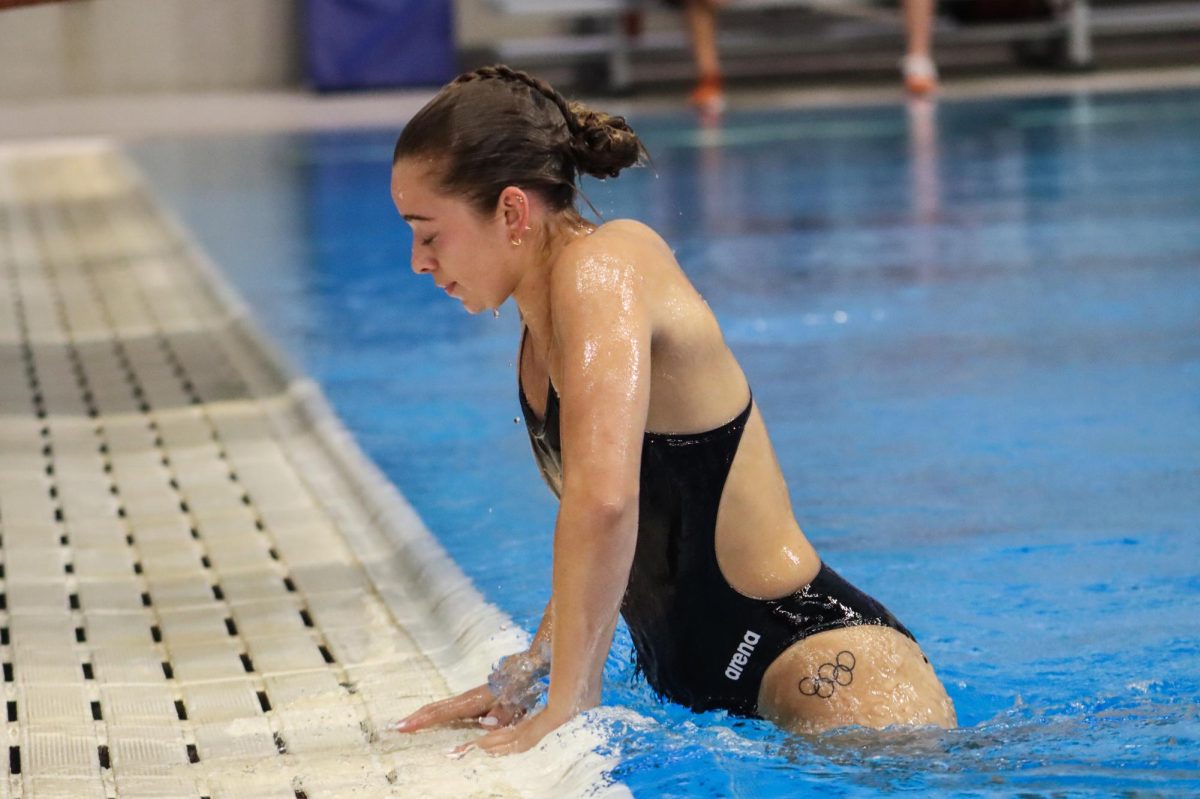Leo Manzano took his place at the starting blocks before the 800-meter race at the Texas Relays.
The 2012 Olympic silver medalist dominated the event the past three years, setting the Texas Relays record in each year. As he readied himself for the race, he expected a fourth.
But when the starting gun fired and the runners merged into the inside of the track after 50 meters, Manzano wasn’t first. Or second. Or third.
He was last.
Another 750 meters later, he crossed the finish line in sixth with a time of 1:49.92, over three seconds off his record pace a year earlier.
But Manzano, now 31, wasn’t worried about the slow time in an Olympic year.
“The main goal is [the races] in July and August,” Manzano said. “When you do lose your race, sometimes it’s good because you learn you have to continue working. It keeps it interesting.”
Manzano grew up in Dolores Hidalgo, Mexico. But when he was four years old, Manzano’s family moved first to Flatonia, Texas, and then to Granite Shoals. Unlike most of his family, Manzano faced relatively few issues adjusting to the American lifestyle.
Manzano developed a love for running and started running cross country in middle school.
“I showed up to practice wearing my jeans, hiking boots and a regular T-shirt,” Leo said.
But when Marble Falls High School track and field head coach Kyle Futrell saw Manzano a year later, he saw more than a kid who didn’t have the proper gear. He saw a runner who was dominating the competition at a young age.
“He ran a 1:55 in the 800 in 100-degree heat, and no one was close to him,” Futrell said. “That’s when I knew we had someone really, really good.”
Manzano won the UIL 4A state cross country meet in his sophomore year and followed up with state titles in the one-mile and two-mile races, finishing high school as a nine-time state champion.
Manzano continued running at the University of Texas and continued winning. He went undefeated in the 1,500-meter in his freshman year in 2005. He took the NCAA indoor mile title and closed with another 1,500-meter NCAA outdoor title.
Manzano, however, found professional life to be difficult. During his four years at Texas, Manzano was never taught about running professionally. No longer did he have a coach to manage the logistics — where to go run, how to get there and when to train. Instead, Manzano had to build a team around him to help make the right decisions and keep him motivated. Running became less of a sport and more of a business.
“You have to make business decisions and see if certain things are good in terms of business sense,” Manzano said.
But in 2008, all of Manzano’s struggles paid off.
He finished in the top three in three 1,500-meter races at the U.S. Olympic trials to qualify for the Beijing Olympics. Manzano failed to qualify for the final but enjoyed what the Olympics offered.
“I was just so excited to be there,” Manzano said. “It was just a whirlwind.”
He followed up four years later, making the 2012 London Olympics, and did more than just show up. Manzano comfortably qualified for the final, but he got off to a less than ideal start to the 1,500-meter final, pinned on the inside of the track.
But with 200 meters to go, Manzano made his move.
He finally found room to his right and moved to the outside. Then, with 30 meters left, he passed two runners to take over second place.
Manzano crossed the line in second — becoming the first American to medal in the event since 1968.
“It was like a dream come true,” Manzano said. “I think about it and it still seems pretty unreal.”
Despite the historic performance, his only sponsor Nike dropped him after both sides couldn’t come to an agreement. In a sport dependent on sponsorships, he struggled to see a way through. Manzano wondered if he could continue down the path as a professional runner with no steady income. He was the breadwinner for his family and was helping his younger brother go through college.
In early 2014, he started a t-shirt project as a fundraiser to help pay for his training. He followed up with one of his most successful seasons, winning the 1,500-meter race at the 2014 USA Outdoor Track and Field Championships.
The sponsors came back. Manzano signed with Hoka One One, a running shoes manufacturer, in April 2014 and has since signed on with Timex and Coca-Cola.
Now on solid footing financially, Manzano looks back on it as a learning experience, gaining knowledge about the business side of running.
“It made me grow as a person,” Manzano said.
Manzano currently spends about six hours training daily, but most of that time is spent away from the track. Instead, the focus is on recovery, getting massages and taking ice baths to keep him going each day.
But his training for this year’s U.S. Olympic trials came to an abrupt halt in February. Manzano was sidelined for three weeks with pneumonia and missed out on the entire indoor track season. His run in this year’s Texas Relays was his first competition of the year.
Despite the slower time at the Texas Relays, Ryan Ponsonby, one of Manzano’s coaches, isn’t concerned for Manzano’s chances at the U.S. Olympic trials in Eugene, Oregon, on July 1–10.
“You can plan ahead, but things are going to happen,” Ponsonby said. “No matter what year it is, you have to adjust and have to think about the next two months.”
Still, there are no guarantees Manzano will make a third-straight appearance at the Olympics. But Manzano is confident he’ll be in form when July rolls around and he can get back to the Olympics.
“Just knowing how much sacrifice it takes, just making another team that would be amazing,” Manzano said.

